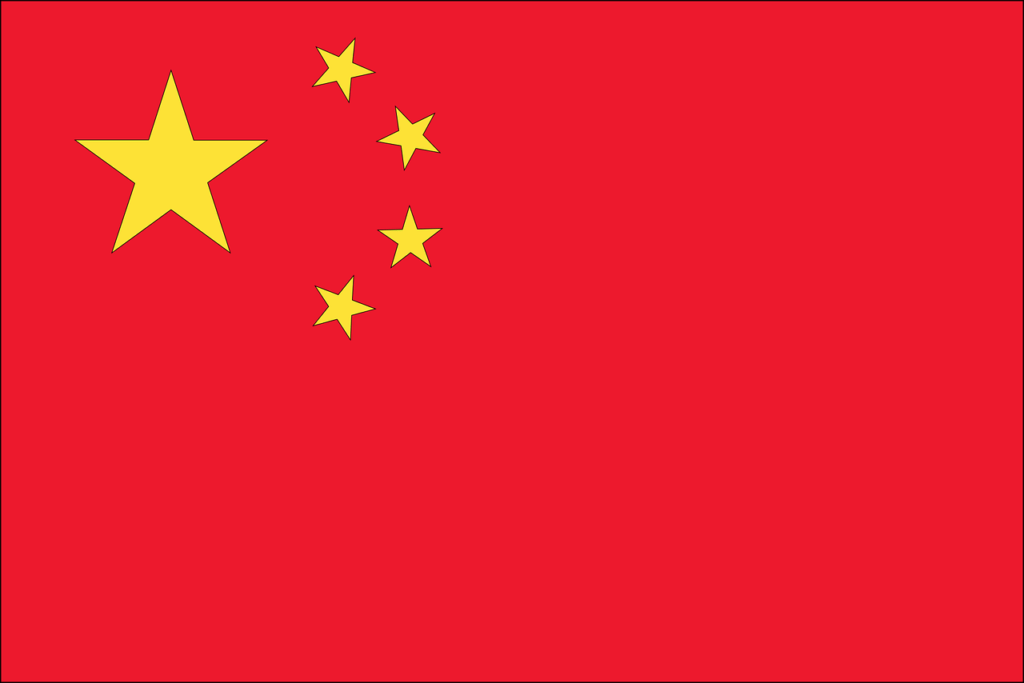
The government maintained insufficient efforts to prevent trafficking and in some instances abetted or perpetrated trafficking. PRC authorities continued to perpetrate trafficking crimes in the country and abroad, including by committing genocide and crimes against humanity and using emerging technologies to carry out discriminatory surveillance and ethno-racial profiling measures designed to subjugate and exploit minority populations in forced labor in internment camps under the pretext of combating violent extremism and other social ills. The government denied verifiable accounts and took steps to ban discussion of trafficking related human rights violations and state-sponsored forced labor. The PRC continued its policies of mass detention and political indoctrination against more than one million Uyghurs, ethnic Kazakhs, ethnic Kyrgyz, and members of other ethnic and religious minority groups in Xinjiang since 2017, and it continued to transfer thousands of detainees into forced labor into dozens of other provinces, according to NGO estimates and media reports. Authorities forcibly transferred thousands of Uyghur youth into manufacturing jobs throughout the PRC to fill labor shortages in quarantine zones. National policies officially imposed “de-radicalization” duties on Xinjiang-based commercial entities and trade unions, further cementing their role in state-sponsored forced labor under the guise of public security measures. Local governments and businesses received tax breaks and financial subsidies for establishing new manufacturing sites and accepting or transferring detainees for these purposes, and officials reportedly received promotions and other benefits for their role in the process. According to official PRC government documents, local governments, at times, arrested Muslims arbitrarily or based on spurious criminal charges and administrative violations – including violation of birth restrictions – to meet detention quotas established specifically for this internment system. Reports indicate authorities partially staffed internment camp facilities using forced labor, including among vocational and language instructors. Authorities sent many detained individuals approved to “graduate” from these facilities to external manufacturing sites in close proximity to the camps or in other provinces and subjected them to forced labor; authorities transferred others and likely subjected them to forced labor within a separate – and growing – formal prison system. The government continued to transfer some members of non-interned minority communities designated arbitrarily as “rural surplus labor” to other areas within Xinjiang as part of a “poverty alleviation” program and exploit them in forced labor. Authorities also used the threat of internment to coerce members of some Muslim communities directly into forced labor in manufacturing. The government continued to subject Xinjiang’s ethnic minority communities to severe travel restrictions, including through prohibitions on access to passports, which compounded their vulnerability to arbitrary detention and state-sponsored forced labor. The Ministry of Foreign Affairs continued to confiscate, cancel, or refuse to renew the PRC passports of Uyghurs and individuals from other mostly Muslim ethnic minority groups living abroad, including those with legal permanent resident status or citizenship in other countries, as a coercive measure to lure them back to Xinjiang and likely detain them within the camps. There were also reports that authorities threatened, detained, and forcibly hospitalized these individuals’ family members in Xinjiang in an attempt to silence them and/or coerce their return. The PRC continued to seek the extradition of ethnic and religious minority group members who sought asylum abroad after fleeing exploitation in forced labor, among other human rights abuses, in Xinjiang. Nationwide, some school districts continued to compel ethnic Han students to participate in internship programs featuring forced labor indicators, including compulsory factory labor.
Authorities reportedly continued to place thousands of rural Tibetan herders and farmers in “military-style” vocational training and manufacturing jobs around the country under the auspices of a quota-based “surplus labor” transfer program ostensibly intended as a “poverty alleviation” measure. Although the program did not feature overt arrests or enforced disappearances, observers noted the system was likely highly coercive, given individuals’ relative inability to refuse participation amid the central government’s pervasive system of social control in Tibetan areas. Some of these Tibetans were subsequently subjected to forced labor in manufacturing. Authorities also exacerbated Tibetans’ vulnerability to trafficking by systematically dismantling the Tibetan rural economy through mass enforced relocations, and by forcing those who sought work in the state sector to renounce all ties to the Dalai Lama as a condition of employment.
The PRC government did not report continuing to implement or expand pilot programs initiated in prior years to reduce trafficking vulnerabilities among foreign seafarers hired informally or illegally to work onboard vessels in the PRC’s global fishing fleet. PRC-owned and affiliated companies continued to employ PRC and foreign nationals at BRI project worksites abroad; the government did not exercise adequate oversight of recruitment procedures, which often featured worker-paid fees driving indebtedness to unregistered brokers, nor did it take steps to ensure worker contracts were free of abusive contract provisions. Many PRC nationals employed at BRI worksites abroad initially entered destination countries on tourist visas and were forced to work without contracts. In recognition of this insufficiency, authorities maintained policies and regulatory standards issued in 2017 barring the collection of recruitment fees or security deposits from job applicants, banning the use of tourist visas for travel to work in BRI destination countries, and instructing companies on safeguarding labor rights; however, these were largely nonbinding, and the government did not report efforts to enforce them. International visibility into BRI recruitment processes, labor contracts, and working conditions was constrained in part due to the PRC government’s failure to establish a single governing entity for the program or to publish a list of worldwide BRI projects, bilateral negotiations for which were kept secret. In recent years, NGOs in countries receiving PRC migrant workers through other bilateral agreements reported the PRC government ignored abusive and potentially illegal contract stipulations, including fees and provisions requiring immediate repatriation for pregnancies or illnesses, which placed some PRC workers at higher risk of debt or punitive deportation as coercive measures to retain their labor; the government did not take steps to address these vulnerabilities during the reporting period. The PRC government’s exertion of political pressure and operating restrictions on NGOs in Hong Kong had a negative impact on anti-trafficking coordination with the local authorities there.
NGOs reported PRC nationals sought assistance from government officials and foreign governments to escape conditions that may have been labor trafficking in cyber scam operations in Burma, Cambodia, and Laos; the government may have repatriated some PRC nationals from these countries. However, the government did not report providing assistance or services to any of these potential victims, or report taking efforts to address labor trafficking in cyber-scam operations, many of which were owned and operated by PRC nationals.
The PRC government did not report holding an annual inter-ministerial meeting to coordinate anti-trafficking efforts for the third consecutive year. The government maintained an Action Plan against Trafficking in Persons (2021-2030), focused on preventing fraudulent adoption, combating cyber-facilitated sex trafficking crimes, and improving labor recruitment procedures, with an emphasis on women and girls; it contained no explicit mention of men or boys and few mentions of forced labor, and in July 2022, MPS initiated the development of an implementation plan. Observers assessed the government devoted significant resources towards the implementation of the action plan primarily through law enforcement and media campaigns, but the government did not provide data on implementation during the reporting period. For the sixth consecutive year, the government did not report its funding for anti-trafficking activities in furtherance of the action plan (more than 55 million renminbi, or $7.97 million, in 2016). The All-China Women’s Federation, which was designated to lead or support dozens of workstreams in the national action plan, maintained provincial chapters. National and local authorities conducted media outreach campaigns on some forms of trafficking, although the content thereof generally focused on child abduction and forced and fraudulent marriage. Officials participated in trafficking prevention training activities in conjunction with international organizations. The government did not provide anti-trafficking training to its diplomatic personnel. The government did not provide anti-trafficking training to its troops prior to their deployment as peacekeepers.
PRC authorities did not take any steps to change policies in response to mounting public concern over Xinjiang abuses and the contamination of international supply chains with goods produced by state-sponsored forced labor there in 2022. To the contrary, the government and affiliated commercial entities continued to engage in a concerted campaign to dispel these accusations through vehement denial in public messaging; state-ordered politically motivated academic research; falsified cotton production and harvest mechanization data; localized propaganda campaigns targeting consumers in trade partner countries; the establishment of false supply chain policy initiatives as alternatives to preexisting international monitoring and compliance programs; new sanctions on foreign government officials critical of PRC abuses; and pressure on international companies.
Academics and experts noted the gender imbalance created by the previous One-Child Policy likely continued to contribute to trafficking crimes in the PRC. The government hukou (household registration) system continued to contribute to trafficking risks of internal migrants by reducing access to social services, particularly for PRC victims returning from exploitation abroad, and by driving hundreds of millions of individuals to live and work illegally outside the jurisdiction of their registration. The government continued to address some of these vulnerabilities by requiring local governments to provide a mechanism for migrant workers to obtain residency permits. However, authorities disproportionately made these residency permits unavailable to rural ethnic Han migrants and members of ethnic minority groups, exacerbating their constrained access to employment and social services. The government did not make efforts to reduce the demand for commercial sex acts. The government did not report investigating or prosecuting any PRC citizens for child sex tourism, despite widespread reports of the crime. While the PRC government included Macau in its succession to the 2000 UN TIP Protocol in 2010, it stated the protocol “shall not apply” to Hong Kong.
from 2023 Trafficking in Persons Report – U.S. Department of State
2023 Trafficking in Persons Report – United States Department of State

